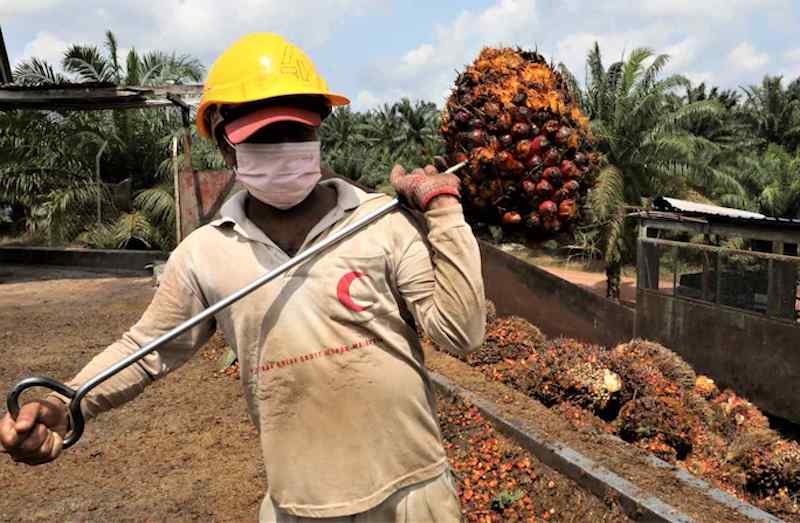Indonesia’s palm oil price should not be dictated by the external market, its trade minister said on Thursday, backing his decision to expand palm oil export curbs at a time of surging global prices from a global supply crunch.
The world’s top palm oil exporter shocked the market on Wednesday when it announced that palm companies from Thursday must sell 30% of their planned exports at home, up from 20%, which sent Malaysian benchmark prices soaring by 10%.
The benchmark climbed 30% in 2021, as output from top producers Indonesia and Malaysia slowed and global demand recovered from the impacts of the pandemic.
The higher global prices saw Indonesian cooking oil prices gain 40% at the beginning of the year, prompting its imposition of export curbs in late January to try to tame the rise.
That triggered another rally in Malaysian prices, which have gained 50% so far this year.
“We want to split the prices between the international market and the local market,” Trade minister Muhammad Lutfi said in a speech on Thursday.
“We have to make sure that Indonesian products become a part of global economic pillars but that doesn’t mean we can be dictated by the world,” he said.
Along with the export volume restriction, Indonesia also set price caps for the crude palm oil (CPO) and the olein sold at home to control the cost of refining them into cooking oil. The government also capped retail prices.
Indonesia’s latest curbs could remove an additional 100,000 tonnes from the global market, said Anilkumar Bagani, research head of Mumbai-based vegetable oils broker Sunvin Group.
According to the regulation document seen by Reuters, exporters of unblended biodiesel must also sell a portion of their CPO or olein domestically before they can export.
- Reuters, with additional editing by George Russell
READ MORE:
Malaysian Firm Launches Online Market for ‘Sustainable’ Palm Oil
India Cuts Tax on Crude Palm Oil Imports to Help Consumers, Refiners
Palm Oil Scales Record Prices on Reduced Indonesia Supply Outlook
























